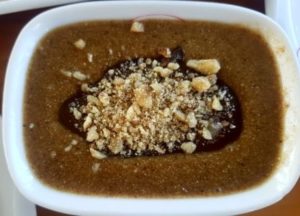What we celebrate and why: Hızır Fasting
Three consecutive Alevi fasting days are marked in our European Interreligious-Worldview Calendar. Our participant Ezgi put us in touch with a friend who described what fasting means to her and who Hızır /Khidr actually is. Thank you, Ceren! We wish you and everyone who is also fasting an easy fast and joyful evenings breaking the fast.
“One of the reasons I fast – be it at Muharram time or the Hızır fast – is that in the Alevi faith, the human being and all their actions are central. It is about the relationship between God and oneself. No external factors or motives should stand in the way of that. Due to years of persecution, repression, and assimilation, many Alevis could not publicly profess their faith. This could be one of the reasons why the existence of this denomination is still unknown to many today. In general, Alevi fasting is not celebrated in a big way and is kept very modest. And that is exactly why this religion fascinates me so much and motivates me to fast. What are my limits? How much can I control myself? Am I actually grateful for all that I have? I don’t fast because it is prescribed to me or because someone expects it of me. I fast from my heart, out of my love for God, for my faith. Because everything else would make no sense if my motives were other than these.
To practise faith, I do not necessarily have to go to a holy place. Of course, Cem ceremonies are held in houses of faith that one can attend, but in the Alevi faith, everyone carries their faith in their heart and can live it out everywhere. The connection to nature and to all living beings is inseparable and of enormous importance. I am responsible for all my actions and am therefore accountable to God. I can only find answers to my questions within myself. It is not just a religion, it also functions as a philosophy of life.
But who is Hızır /Khidr?
According to the Alevi faith, the holy brothers Hızır /Khidr and Ilyas lived as prophets and drank the “water of immortality” to help people in need. They thus serve as patrons. In addition, Hızır /Khidr can encounter us in different guises in everyday life, e.g., to test how helpful and merciful people are, or to help us get through a difficult life situation.
From mid-January to mid-February, three-day fasts are held in various regions in honour of Saint Hızır /Khidr. The fast is from Tuesday to Thursday. Most people fast in the second week of February, when the Hızır /Khidr fasting month comes to an end. Nothing is eaten or drunk from sunrise to sunset. In the evening, the fast is broken together with the family or within the community. In contrast to the Muharram fasting period, even meat and other animal products may be eaten.
On the last evening, niyaz, a special bread, is baked and kavut is prepared. The special dish made from wheat rests overnight. Each family member wishes for something very special. According to Alevi belief, this wish could come true ifHızırtastes the food overnight or leaves a sign of blessing on it. The food is brought to the memorial site or to a Cem Evi on the last day of fasting to be enjoyed together and shared with all the other visitors. The joint Cem ceremony also takes place there.”


